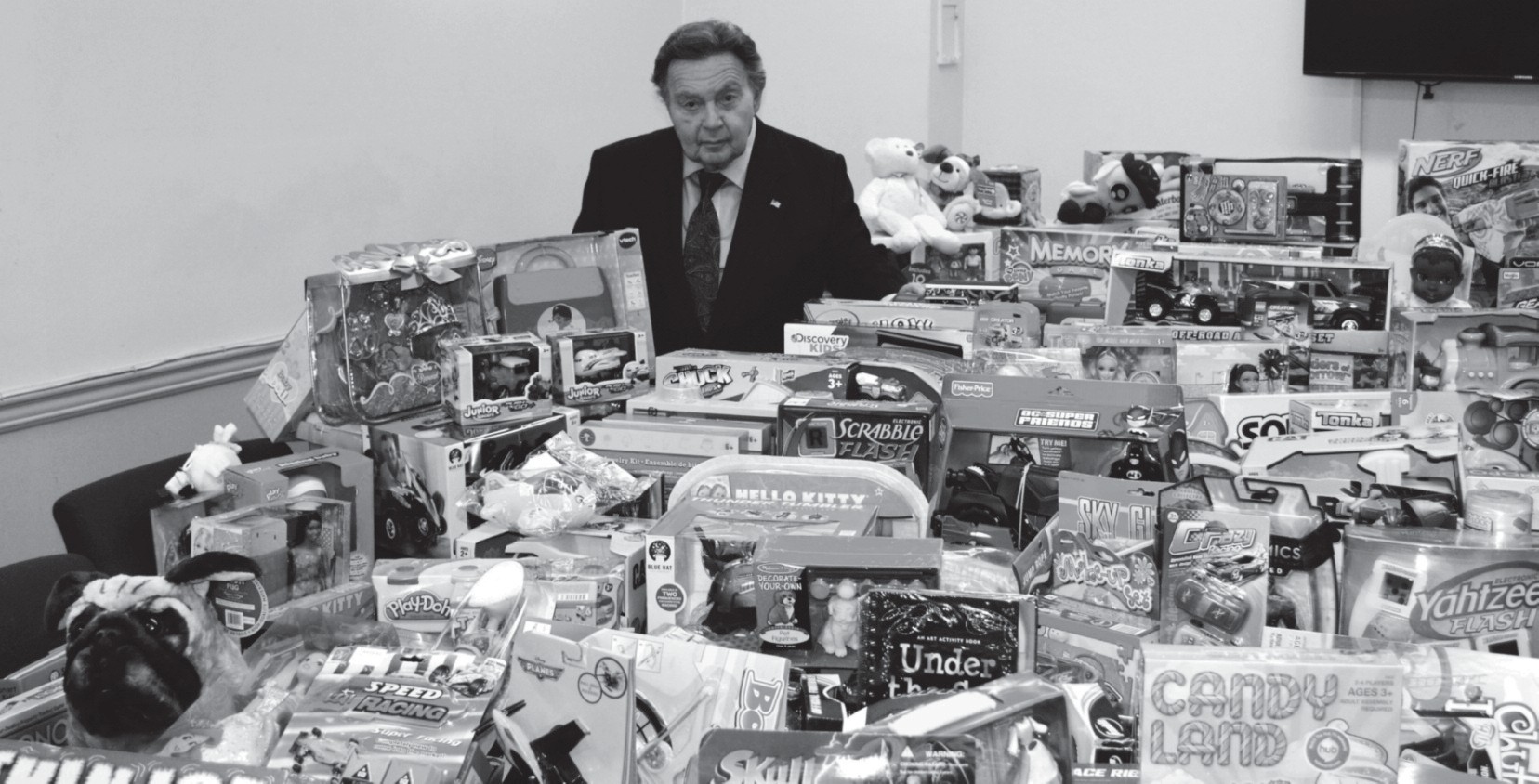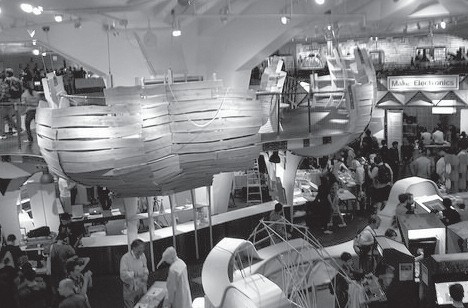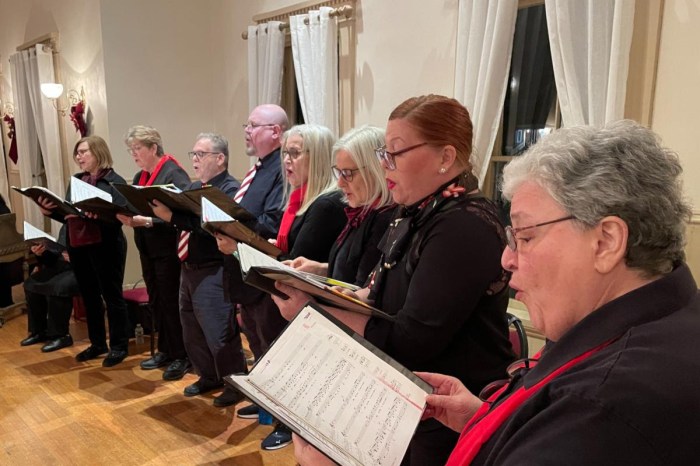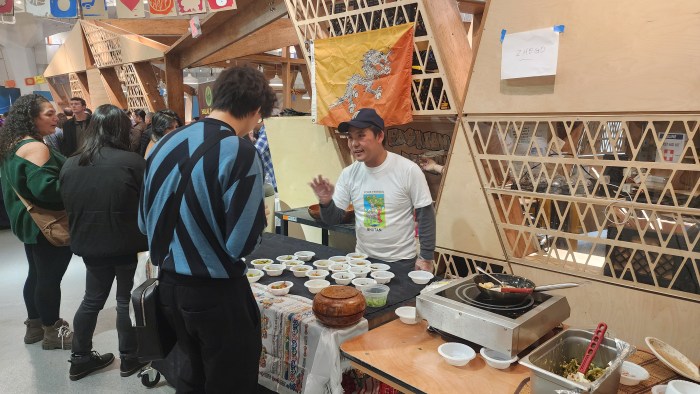Four-Day Movie Festival Highlights Local Directors
Two screenings at the Bushwick Film Festival, held Oct 2-5 in spaces throughout the neighborhood, highlighted independent films and told a story that traced a nearly 30-year-old murder—and the effort to clear a man the film claims was wrongly imprisoned for the crime.

The award-winning feature titled “Samuel’s Game,” a gritty psychological thriller was shot almost entirely in the neighborhood, and another, the powerful story of David McCallum traced his journey as a 16-year-old convicted of a brutal kidnapping and murder in the mid 1980’s, to the multi-pronged efforts to get him cleared of the crime.
Filmmaker Ray Klonsky, his father, Ken and pro-bono attorney Oscar Michelen have been working on the effort to get the case reviewed and McCallum released for several years. Nearly seven years in the making, aside from the friendship he had begun with McCallum while he has been incarcerated, Klonsky said he made the film because the subject matter fascinated him.
“His story was the most fascinating I have ever come across and still is,” Klonsky told the Times Newsweekly Monday.

His father Ken was a high school teacher, and has devoted himself to McCallum’s case and those of the wrongfully convicted, the documentary noted.
Klonsky originally wrote a documentary proposal as a junior studying communications at Concordia University in Montreal. The documentary was picked up, but the company that orignally bought it shelved the project for longer than he would have wanted.
So just last Saturday, with several members of McCallum’s family attending, the documentary was shown not far from where McCallum moved with his family to live in Bushwick.
The conviction for the Oct. 20 1985, kidnapping and murder of Ozone Park resident Nathan Blenner changed McCallum’s life irrevocably. On that day Blenner was brutally murdered, and his body was later found with a gunshot to the head in Aberdeen Park in Bushwick. A torched car, owned by Blenner was found in the park as well.
Only a week later, McCallum and a friend, Willie Stuckey, both teenagers at the time, were picked up by police and brought to the 83rd Precinct stationhouse for questioning.
As the film claims, under pressure from detectives, and in the midst of the crack-fueled violence epidemic of the 1980’s, McCallum admitted to the murder on a videotaped confession, calling it the worst mistake of his life.
“Little did he know that this five minutes would change his life,” Michelen said. “It’s really tragic.”
Convicted of the homicide in a jury trial, McCallum has been in prison for almost 30 years. The filmmaker, Ray Klonsky struck up a fiendship with McCallum through letters at the urging of his father Ken, who had earlier befriended wrongfully convicted Rubin “Hurricane” Carter.
The brutal crime happened right in the middle of the crack epidemic when street violence was rampant in many New York City neighborhoods. At this time, the film noted, juries were fed up with shootings and there was pressure to convict.
It was also in the very early days of video confessions, Michelen noted.
There was no DNA evidence at the time that could exonerate McCallum, and in its absence, and under pressure from police, juveniles could be coerced to confess, Michelen said.
His lawyer, later disbarred, completely bungled McCallum’s defense, the film noted. He did not make any opening statement, failed to interview an eyewitness washing her car before Blenner was kidnapped who said she saw two young men on the day Blenner was murdered and the attorney did not cross examine the material witnesses for the prosecution.
The witness said one of the two young men wore his hair in braids; neither Stuckey or McCallum did at the time, the documentary noted.
Stuckey later died in prison, further clouding the facts surrounding the case.
After striking up a friendship while he was behind bars, Klonsky said McCallum’s advice helped him follow his own dreams to make television and film.
“What he really did was put things in perspective for me, Klonsky said. “What he did was help me reevaluate my attitude. His story made me understand I don’t have a right to be angry.”
Now almost thirty years later, McCallum’s case is being looked into by the Kings County District Attorneys Conviction Review Board, which has been beefed up since Ken Thompson was elected to replace Charles Hynes earlier this year, and McCallum’s supporters remain hopeful, as he has for almost three decades.
“Hope is all I have left, because hope inspires freedom,” McCallum said in the documentary. “I guess in some ways I’m hoping for a miracle.”
In one of Carter’s last acts before he died this april, he wrote a letter that was printed in the New York Daily News that urged McCallum’s conviction be reviewed and that he eventually be exonerated.
Before he succumbed to illness, Carter joined the McCallum team as a noteworthy figurehead, bringing attention the case.
“For Ruben Carter to truly rest in peace, he would like David McCallum to be released,” Klonsky said.
“What we hope people take away is seeing David as we see him,” Klonsky said. “And get involved and spread David’s story. We hope people get a little fired up and a little saddened, but we hope that people see that no matter where you are you can help other people.
“It’s a story about hope,” he added.
“I would hope the broader relevance is about staying the course and fighting for what you believe in. Wherever you find yourself, you can help people,” Klonsky said.
The documentary also noted that a murder weapon was never found, and that a witness for the prosecution that testified under a possible alias may have done so under a deal to reduce his own jail time in connection with the armed robbery of a bodega.
Samuel’s Game, shown for the first time last month at the Coney Island Film Festival, won their award for best feature and was the only screening to sell out tickets at Bushwick, filmmaker Jared Outten said.
He produced, directed and wrote the script for the featurelength film, which showcases Bushwick prominently.
Scenes filmed on the elevated J subway line add an authenticity not normally found in New Yorkbased films, Outten told the Times Newsweekly on Monday.
“Broadway is a bit of a grittier street, and I wanted to use it a visual device in the film,” Outten said.
Instead of shooting in more polished, Brownstone neighborhoods, as many movies in New York are, Outten made the deliberate choice to film the grittier side of the city.
“I was going for more stylistic choices like the movies in the seventies and eighties,” he said.
Adding to the throwback feel, no computer generated imaging was used in the movie, all effects and camera shots used longestablished filmmaking techniques to add to its authentic, city-feel look.



































